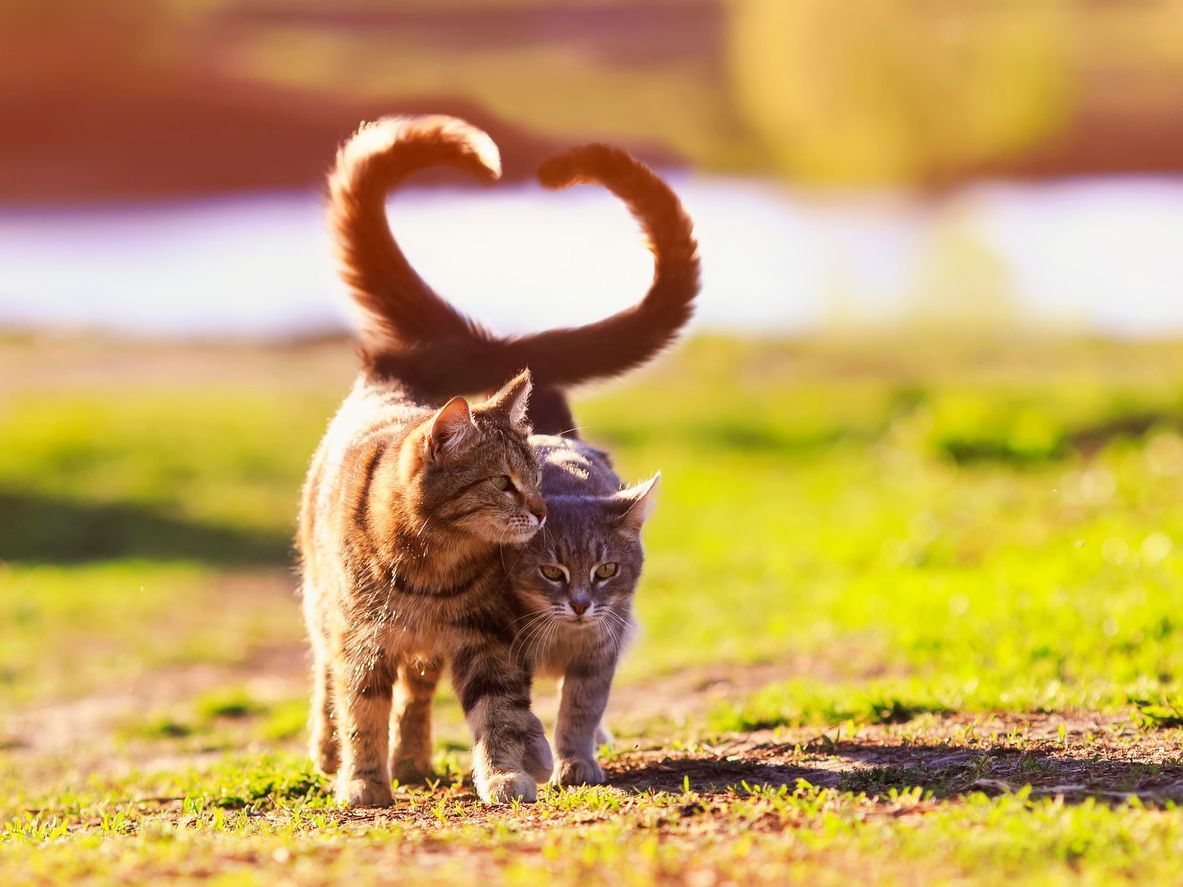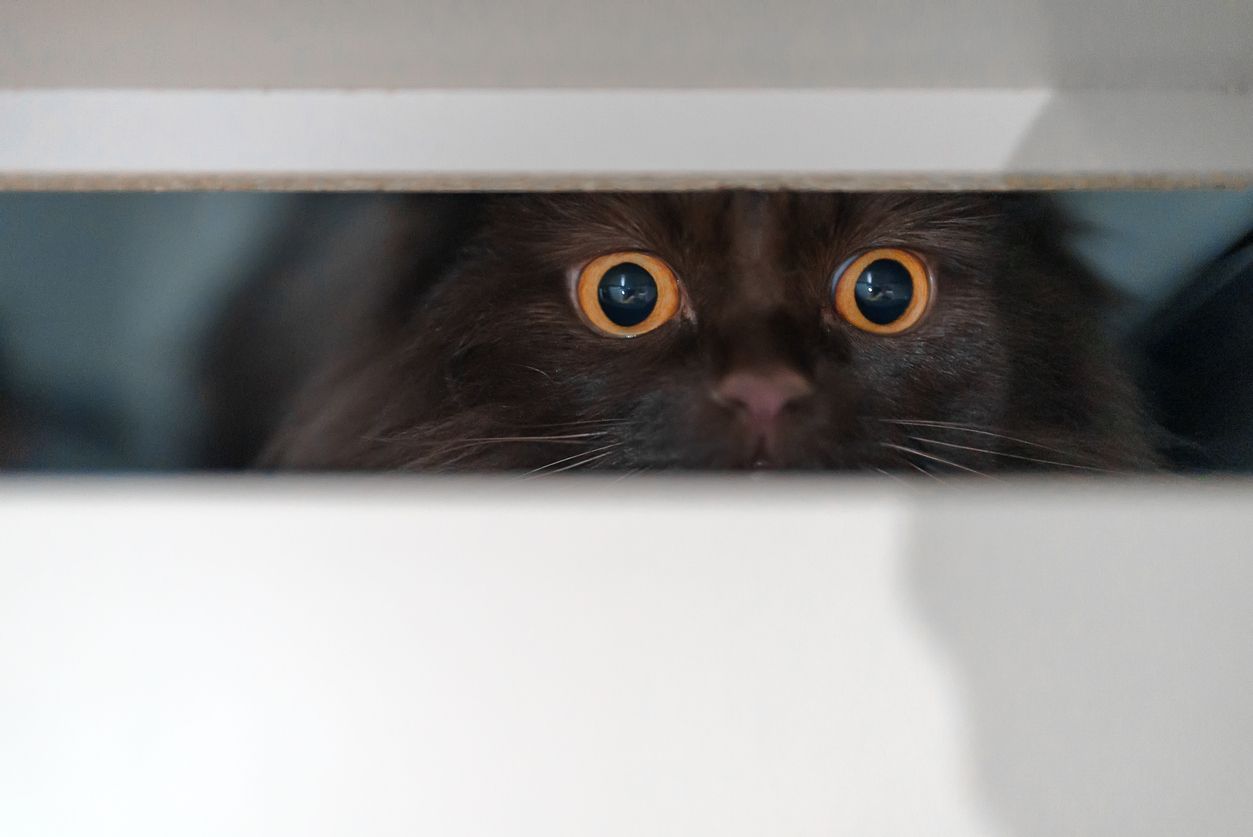Cat breeds with a genetic predisposition for heart disease

Disclaimer: This article, its content, and its related references do not constitute veterinary advice and should not be considered a substitute for veterinary care. If your pet is showing any symptoms that could indicate a medical emergency, please seek immediate emergency care.
Conditions that impact heart function can affect cats of any breed, sex, or age. However, some cat breeds are predisposed to certain heart diseases, meaning they tend to get them more than other breeds. Breeds such as Maine coons, Ragdolls, sphynxes, Siamese, and others are more at risk for heart conditions such as hypertrophic cardiomyopathy, dilated cardiomyopathy, and congenital heart conditions. If you have one of these breeds of cat, read on to learn:
- How cats get cardiac disease
- Cat breeds at risk for common heart problems
- Clinical signs of feline heart disease
Cats with heart disease may not display symptoms until they’re in congestive heart failure or they develop a saddle thrombus from a blood clot. Signs of heart failure may be mild at first, while saddle thrombosis has sudden, severe symptoms. Both congestive heart failure and saddle thrombosis are emergencies that can result in sudden death. Common heart conditions increase the risk of heart failure and the formation of blood clots.
What is feline heart disease?
Heart disease is any condition that affects a cat’s heart and the function of its heart. Major underlying causes of feline heart disease can be categorized as:
- Nutritional
- Infectious
- Inherited
In addition, some common endocrine disorders in cats can contribute to the development of cardiovascular disease, especially in senior cats. They include:
- Hyperthyroidism
- Chronic kidney disease
Whether they’re inherited or not, heart conditions can be categorized as:
- Congenital: Present at birth
- Acquired: Developing later in life
Some purebred cats are more likely to develop certain types of heart disease than other breeds or domestic shorthairs. This is known as “breed predisposition.” However, any cat of any breed can develop cardiac disease.
Clinical signs of heart disease in cats
Many cats with heart disease don’t show obvious symptoms until the condition becomes severe. Hypertrophic cardiomyopathy (HCM) and dilated cardiomyopathy (DCM) are progressive diseases with few to no early symptoms. Some cats with congenital heart defects will have no symptoms.
Cats with HCM, DCM, or endomyocardial fibrosis (EMC) may not show any symptoms until the disease has progressed to congestive heart failure or the affected cat develops a saddle thrombus, a life-threatening and often fatal condition in which a blood clot prevents blood flow to the hind limbs.
Signs of heart failure in cats include:
- Rapid respiratory rate
- Difficulty breathing
- Coughing
- Lethargy
- Exercise intolerance
- Decreased appetite
- Weight loss
- Abdominal distension
Symptoms of saddle thrombosis include:
- Sudden, severe pain
- Increased vocalization
- Paralysis of the hind legs
- Weakness or difficulty walking
Congestive heart failure is progressive and may not be obvious until a cat is in a life-threatening emergency. Saddle thrombosis occurs very suddenly and is always an emergency.
Common feline heart diseases and breed predispositions
There are many different heart conditions that can affect cats, but only a few are shown to be more prevalent in certain breeds.
Hypertrophic cardiomyopathy
Hypertrophic cardiomyopathy (HCM) is the most common heart disease in cats. It also has a strong breed predisposition. HCM is an acquired heart condition in which the muscular walls of the heart thicken over time. The thickened heart muscle becomes stiff and can’t pump blood efficiently. In addition, the walls begin to occupy the heart chambers through which blood flows, leaving less space for blood within the heart.
Breeds with a predisposition for HCM include:
- Maine coon
- Ragdoll
- Sphynx
Maine coon and Ragdoll cats are especially prone to HCM. Cats with HCM are at high risk for congestive heart failure and saddle thrombosis (aortic thrombosis) from the formation of blood clots.
Dilated cardiomyopathy
Dilated cardiomyopathy (DCM) is an acquired condition in which the heart chambers enlarge as the walls grow thin and weaken over time. As a result, the heart can’t efficiently pump blood. Congestive heart failure is a common result of DCM in cats.
Cat breeds that may be predisposed to DCM include:
- Burmese
- Siamese
- Abyssinian
Congenital heart disease
Congenital heart diseases are less common in cats than in dogs and are far less common than acquired heart issues. “There is limited information about the hereditary nature of congenital heart defects in cats, but ventricular septal defects are the most frequently documented congenital condition,” states Dr. Jo Myers, a veterinarian on Vetster. “Cases seem to occur sporadically, however, and are not strongly associated with any particular cat breed.” If purchasing a purebred cat, it may be beneficial to know whether the parents have been tested for genetic heart conditions.
Endomyocardial fibrosis (EMC) is a rare heart condition in which scar tissue forms in the left ventricle of the heart, making it difficult for the heart to pump and fill with blood properly. EMC has been shown to be inherited in:
- Siamese
- Burmese
- Domestic shorthairs
However, cats of any breed that have parents with EMC can inherit the disorder.
When to talk to a veterinarian about your cat’s heart health
It’s important for your cat to get regular wellness checks with a veterinarian. When a vet listens to your cat’s heart with a stethoscope during a physical examination, they can detect signs of heart disease, such as a heart murmur, irregular heartbeats or heart rate, and other abnormalities. A veterinarian may suggest diagnostic testing based on the findings of their physical exam and your cat’s overall risk factors. This may include:
- Blood tests
- Blood pressure test
- Diagnostic imaging
It may be beneficial to talk to a vet about genetic tests or diagnostics for certain heart conditions if you have a high-risk purebred cat.
If you have concerns about your cat’s overall risk of cardiovascular disease based on their breed, lifestyle, and overall health, veterinary professionals are available through Vetster’s online virtual care appointments to help.
FAQ - Cat breeds with a genetic predisposition for heart disease
What breeds of cat are prone to developing heart disease?
Purebred Maine coon, Ragdoll, sphynx, Siamese, and Burmese breeds are at a higher risk of developing heart conditions such as hypertrophic cardiomyopathy, dilated cardiomyopathy, and congenital heart conditions. However, any cat of any breed can develop heart issues.
What cats are most at risk for hypertrophic cardiomyopathy?
Hypertrophic cardiomyopathy is the most common heart condition in cats, and any cat can develop it. However, purebred Ragdoll, sphynx, and Maine coon cats appear to be at a higher risk genetically.
Why do cats develop heart disease?
While many cases of feline heart disease are idiopathic, meaning no underlying reason can be identified, heart conditions in cats can also develop due to genetics, poor nutrition, or infectious disease. Though any cat can develop heart issues, purebred Maine coons, Ragdolls, sphynxes, and other breeds are genetically predisposed to common forms of heart disease.




